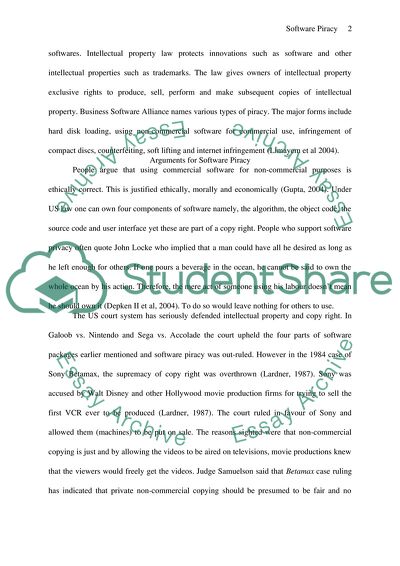Cite this document
(Copyright Infringement Case Study Example | Topics and Well Written Essays - 1250 words, n.d.)
Copyright Infringement Case Study Example | Topics and Well Written Essays - 1250 words. https://studentshare.org/information-technology/1843603-what-are-the-arguments-for-and-against-software-piracy-and-downloading-copyrighted-material
Copyright Infringement Case Study Example | Topics and Well Written Essays - 1250 words. https://studentshare.org/information-technology/1843603-what-are-the-arguments-for-and-against-software-piracy-and-downloading-copyrighted-material
(Copyright Infringement Case Study Example | Topics and Well Written Essays - 1250 Words)
Copyright Infringement Case Study Example | Topics and Well Written Essays - 1250 Words. https://studentshare.org/information-technology/1843603-what-are-the-arguments-for-and-against-software-piracy-and-downloading-copyrighted-material.
Copyright Infringement Case Study Example | Topics and Well Written Essays - 1250 Words. https://studentshare.org/information-technology/1843603-what-are-the-arguments-for-and-against-software-piracy-and-downloading-copyrighted-material.
“Copyright Infringement Case Study Example | Topics and Well Written Essays - 1250 Words”. https://studentshare.org/information-technology/1843603-what-are-the-arguments-for-and-against-software-piracy-and-downloading-copyrighted-material.


